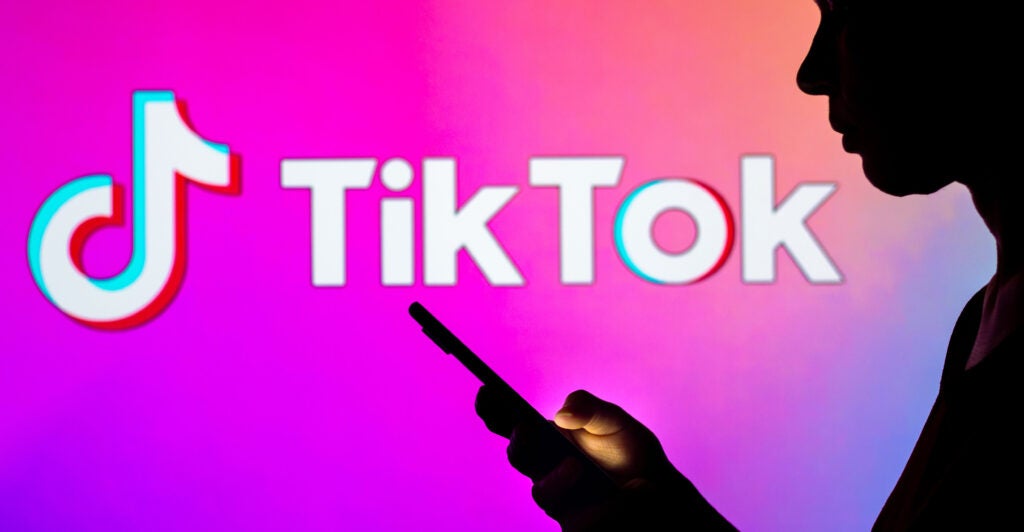The New York Times on Sept. 26 reported that the Biden administration and the social media platform TikTok (owned by China-based ByteDance) may have reached a preliminary agreement that would allow TikTok to continue to operate in the United States, but with new restrictions to keep the user data of Americans within the U.S.
Oracle would become the host of Americans’ TikTok data, tasked with ensuring that it would not end up in Communist China.
What’s at stake are detailed portraits of anywhere from 80 million to 120 million American users of TikTok, including tens of millions of adults.
The data TikTok compiles, according to its privacy policy, includes:
- Face prints, voiceprints, and other biometric identifiers of users, “face and body features and attributes” of everyone in videos, “keystroke patterns or rhythms,” everything typed in and uploaded to the app, including videos never published. Everything said in videos is transcribed, as are all words visible on-screen. The “objects and scenery that appear in videos” are also identified and stored.
- Metadata from all uploaded videos and images is captured; as is extensive device and network data, including unique device identifiers, location information derived from SIM cards and IP addresses, and in some cases, precise GPS coordinates.
- The preceding is merged with information obtained from third-party sources, including “data providers” and “other publicly available sources”; as well as from cookies and similar methods to track a user’s pages visited across the internet. TikTok does not honor “do-not-track” signals.
- TikTok notes it may disclose this data to respond to “government inquiries” and to “comply with any applicable law” and share it with other entities in its corporate group and as part of a sale or merger.
If that dossier of information were deployed solely to deliver a user more tempting videos or ads, that might be acceptable. But if those detailed profiles were likely to be obtained by a hostile adversary that has vowed to supplant us economically and militarily, then we need think long and hard about permitting this.
Earlier this year, BuzzFeed reported on leaked audio from internal TikTok meetings at which numerous employees and consultants confirmed that ByteDance has access to U.S. user data, including by a Beijing-based engineer who was said to have “access to everything.”
It’s even unclear whether any agreement hashed out by the U.S. and ByteDance would solve the problem. In one recorded meeting, a ByteDance executive sounded surprised or amused that American negotiators had a very narrow definition of what would be restricted to the U.S. as “protected data.”
ByteDance would also retain ownership of all data maintained by Oracle on U.S.-located servers.
On top of that, the constitution and laws of China make ByteDance subservient to the Chinese Communist Party.
Article 11 of the Chinese Constitution says that the state “guides the development of the non-public sectors of the economy and, in accordance with law, exercises oversight and control over” them. Article 1, in turn, declares the supremacy of the Chinese Communist Party over the state.
Chinese President Xi Jinping removed all doubt about that reality in 2017, when he said, “Party, government, military, civilian and academic, east, west, south, north and center, the party leads everything.”
And he wasn’t joking.
On Oct. 24, 2020, world-renowned multibillionaire Chinese business guru Jack Ma, founder of Alibaba and its financial tech spinoff Ant Group, gave a speech to Chinese regulators. He chided them for overregulation, an archaic mindset, and a lack of innovation, and denigrated what he called “China’s pawnshop mentality.”
In the following days, the government canceled Ant’s mega-initial public offering and launched an antitrust investigation of Alibaba. Ma went unseen for months, and is now ceding control of Ant Group.
Since that speech, Alibaba’s stock has lost 73% of its value.
In light of that, does anyone think ByteDance would refuse a Chinese Communist Party demand for all of its data on 100 million Americans?
That information would aid in, among other things, espionage, recruitment of informants, tracking of lawmakers and military troops, intimidation of overseas Chinese living in America, and the social engineering seeds for all this and more. (Even storing the data of a random American teen creating videos from inside her house could suddenly become useful if China, say, later learned her mom was conducting cutting-edge research at one of our business, government, or academic centers.)
It poses an unacceptable risk to our national, economic, and personal security to put this body of information about one-third of Americans potentially in the hands of the Chinese Communist Party.
We live in a free and open society fueled by free markets. One hundred million Americans enjoy and choose to use the TikTok app. Lawmakers must tread very carefully, and with great and sober restraint, when we consider using the awesome power of the federal government to override the freedom of the market and intrude on our citizens’ commercial choices.
Nevertheless, in some cases, it’s warranted.
Barring airtight safeguards—perhaps impossible to implement—to prevent this data on Americans from making its way to China, a forced sale would be the best way to move forward, ideally to a U.S. tech company not currently in the social media space.
That would preserve competition in short-form video aggregation while protecting vital U.S. interests.
The Daily Signal publishes a variety of perspectives. Nothing written here is to be construed as representing the views of The Heritage Foundation.
Have an opinion about this article? To sound off, please email letters@DailySignal.com and we’ll consider publishing your edited remarks in our regular “We Hear You” feature. Remember to include the url or headline of the article plus your name and town and/or state.
